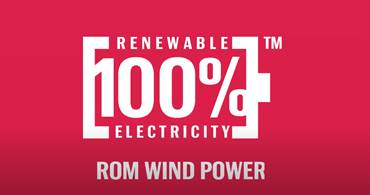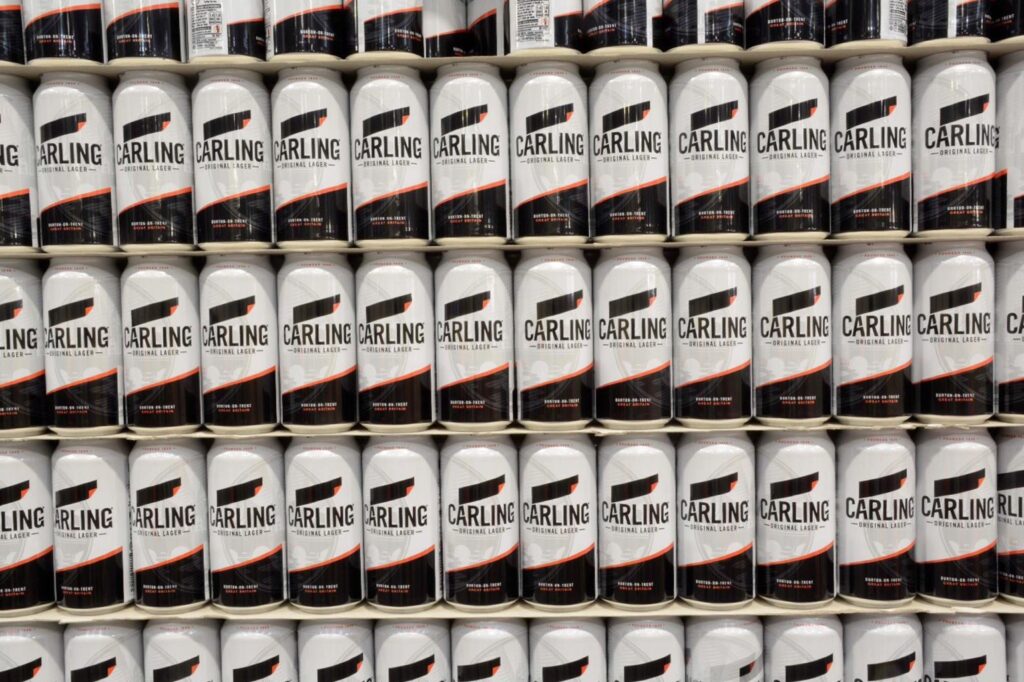One of the mega-trends of the last few years is, excuse the pun, hotting up. Though there have been a number of moves from drinks companies over the last few years to meet the environmental concerns of consumers and reduce the waste the industry creates – from biodegradable straws, to recycled materials being used for bottles – in the past few weeks major drinks makers have taken some of their biggest steps yet towards sustainability.
In early April, Molson Coors announced it was to become the first major UK brewer to make all products from 100% green electricity. The producer of brands including Carling, Coors, Doom Bar and Aspall Cyder, will make more than one billion pints in an average year using green electricity. The long-term agreement covers all UK operations including production sites at Burton, Tadcaster, Rock and Suffolk, and sees the business on track to achieve its 50% emissions reduction target in the UK four years ahead of schedule.

Green energy
A Power Purchase Agreement (PPA) with renewable energy RWE will see electricity generated from wind farms in South Yorkshire, with the 10-year agreement seeing the company deliver around 75 gigawatt hours of green electricity per year. In an average year Molson Coors consumes the same amount of electricity as around 25,000 households – or the population of the business’ historic UK brewing home in Burton-upon-Trent.
Fraser Thomson, operations director for Western Europe at Molson Coors Beverage Company said: “One of our values at Molson Coors is taking accountability, and that includes being responsible for the impact our business has on the environment. That’s why we’ve made such bold commitments to play our part in tackling climate change – because it is the right thing to do. We know that this matters to our people, our customers and consumers, and they can now be assured that everything we do, and every pint we make, is powered by 100% green electricity.”

Meanwhile at the same time AB InBev announced that every single can, bottle and keg of Budweiser in the UK is now brewed with 100% renewable electricity, commencing in January 2021. In 2018 Budweiser Brewing Group UK&I (BBG) signed the UK’s largest privately-funded solar power deal to commit to brewing from 100% renewable sources. BBG now generates enough renewable electricity from the two solar farms and a wind turbine that it built, to power its brewing operations not only of Budweiser, but its entire portfolio, including other BBG brands such as Stella Artois, Corona, Bud Light and Becks.

According to Budweiser, if every one of the 8.5 billion pints drunk every year in Britain was brewed with 100% renewable electricity, it would save more than 350 million tonnes of C02 entering the earth’s atmosphere, the equivalent of planting 500,000 trees. The brewer has launched digital and TV adverts promoting the move.
Individual contributions
Paula Lindenberg, president at Budweiser Brewing Group UK&I says: “In the UK we are all concerned about the climate crisis, but the scale of the problem means people often don’t know what they can do to help as individuals. Rightly, they’re looking to businesses to act.”

Scottish brewer BrewDog has also been making moves to bring consumers along with it for its journey into becoming more eco-friendly. Aiming “to set a new standard when it comes to sustainability”, in September it announced it had become the world’s first carbon negative brewery. However, expanding it beyond the scope of its own footprint as a business, the brewer committed to removing twice as much carbon as its team members are responsible for in their personal as well as business life for as long as they work for the business. The company also owns a 2,000 acre BrewDog Forest where it plans to plant over one million trees.
More recently in March, it launched what it described as the world’s first carbon negative beer club. Though the subscription box will include beers from brewers from around the world, to ensure the service is entirely carbon negative, the guest beers will be brewed under license at its own brewery in Ellon. For each box of beers shipped, BrewDog will offset 2,500 grams of CO2.
Recycled products
And in a timely move marking the easing of lockdown in the UK, brewer Heineken announced that is had saved 83,210 fifty-litre kegs of beer from going to waste since May 2020, but converting product that would have gone to shuttered pubs, into energy. The team at the brand’s Manchester brewery designed a method whereby excess beer is fed into the onsite water waste treatment plant, placed into an anaerobic digester, and converted into biogas. Equivalent to 7 million pints of beer, Heinekens says it has created enough energy to heat around 28,000 average UK homes for a day.

And now in late April 2021, Carlsberg too has joined the fray, launching an advert in partnership with the World Wide Fund for Nature (WWF) showing how it has partnered with the charity to make a “better tomorrow for our planet”. The company is working alongside the WWF to help restore sea meadows to UK waters, which are estimated to have lost 90% of what it used to have. According to Carlsberg, often described as ‘an underwater Amazon’, seagrass meadows can absorb carbon up to 35 times faster than a rainforest and play a vital role in maintaining healthy seas, as well as providing habitat for ocean wildlife.
https://www.youtube.com/watch?v=KyxwtQdTwSs
The company has previously partnered with the WWF “behind the scenes” to create its sustainability programme, Together Towards Zero, which includes a commitment to create zero carbon emissions from its breweries by 2030.
Where next?
Eco-minded products, from beers made of waste food products – such as stale bread, or ‘wonky’ breakfast cereals – have been coming to market for some years, while producers have also been making baby steps towards making their packing less wasteful. And from gin to rum, a number of small-scale craft producers from Cooper King to Copalli rum have opened in recent times, using fully green energy production, as well as a reduction in the materials needed for packing and shipping their products.

However, 2021 thus far has proved a significant time for some of the biggest drinks producers to look at and implement a wholescale revision of how their products are produced. And interestingly, it seems that to win the hearts and minds of ever eco-concerned consumers, having a neutral impact is no longer enough. From giving back with the supply of energy generated from waste beer, to significantly over-compensating not just for the impact of the production of their drinks, but the people employed too, brands are now going a step further grab consumer’s attention in a world of increasingly loud and frequent eco-claims across products from body washes, to footwear.
But resting on their laurels is not an option. For those big drinks producers not already able to make eco-claims, work must begin in earnest to catch up. And for others that have begun, consumers will demand more than pilot projects, backing experimentation and pledges. Brands will increasingly be under pressure to demonstrate to consumers the more positive impact of a consumer’s individual purchasing decision to opt for their brand over others, in a tangible, micro way. What does this product contribute that comparable ones don’t? What resources does it save, or prevent from going to waste?
Even in the face of an economically crippling and personally devastating pandemic, consumer concerns over the environment have only grown. Getty Images’ creative insights platform Visual GPS in conjunction with YouGov, published data in October 2020 that climate change and sustainability issues has risen in importance to consumers since the start of the pandemic.
Based on insights from 10,000 consumers across 26 countries, the survey found 81% of people expect companies to be environmentally conscious in their advertising and communications, while 69% claimed they were doing everything possible to minimise their carbon footprint, an increase of 6% from the previous year.
